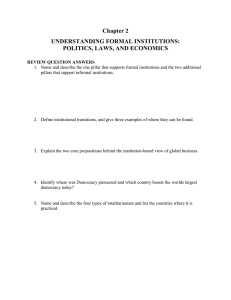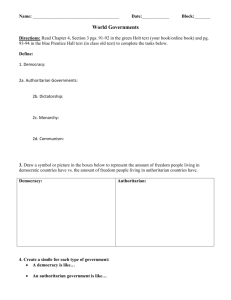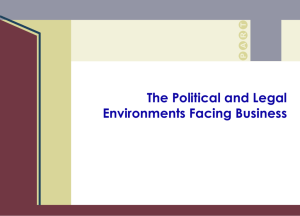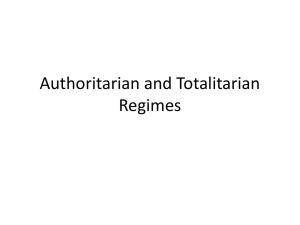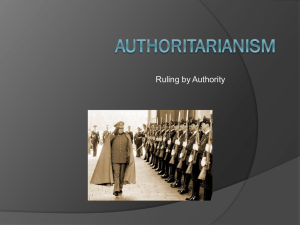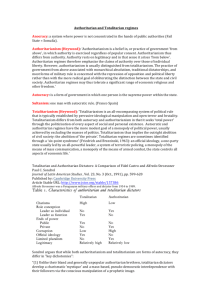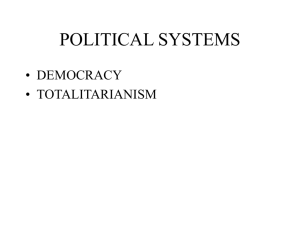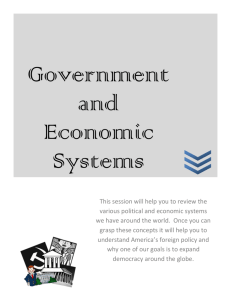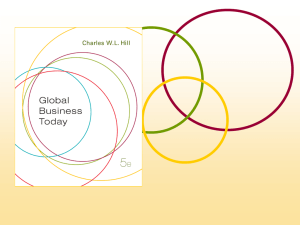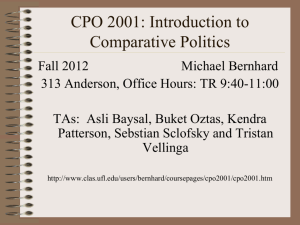Democracy, Totalitarianism, and Authoritarianism
advertisement
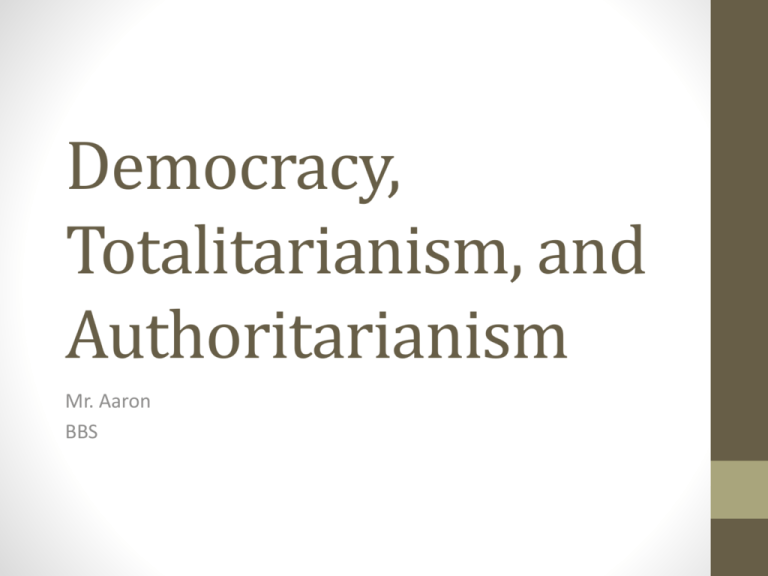
Democracy, Totalitarianism, and Authoritarianism Mr. Aaron BBS Modern Democracy • Democratic countries need thoughtful citizens, limits on power, rule of law and human and civil rights. • Representative democracy (RD) is the only workable system of democracy today. • Why do you suppose this is the case? • RD is constitutional which means that the government is limited and can wield its authority only in specific ways. Characteristics of Representative Democracies • • • • • • • • • Popular Accountability of Government Political Competition Alternation in Power Popular Representation Majority Decision Right of Dissent and Disobedience Political Equality Popular Consultation Free Press Totalitarianism • Totalitarianism is a system in which one party holds total power and attempts to restructure society in accordance with party values. • This political system began with Lenin gaining power of Russia in 1917 and gained popularity with Mussolini in Italy (1922) and Hitler in Germany (1933). • Cuba and North Korea are the only two examples of pure totalitarian states. • How are these countries portrayed in the media? Why do you suppose this is the case? Characteristics of a Totalitarian State • • • • • • All-Encompassing Ideology Single Party Organized Terror Monopoly of Communications Monopoly of Weapons Controlled Economy Authoritarianism • Authoritarian regimes are governed by a small group that minimizes popular input; it is usually a party, a dictator, or the army. • Many of the economic, social, religious, cultural, and familial matters are left up to the individuals. The six characteristics of totalitarianism are either diluted or absent in an authoritarian regime. Authoritarianism and Developing Nations • Many developing nations fell into systems of authoritarian rule after WWII. • Many political scientists argue this is because these societies had preindustrial, traditional peasant economies. Additionally, the levels of education and income were often low which made it difficult to focus on building a government. • Many leaders in these developing nations believed that political and economic survival and growth need centralized power. Authoritarian States • Examples • • • • • • Burkina Faso China Madagascar Vietnam Zimbabwe Belarus Spectrum Scale of Government Power • • • • • • Perfect Democracy Democracy Limited Democracy Authoritarianism Totalitarianism Perfect Totalitarianism Vocabulary • Democracy: Political System of mass participation, competitive elections, and human and civil rights. • Representative Democracy: One in which the people do not rule directly but through elected and accountable representatives. • Totalitarian: Political system in which state attempts total control of citizens. • Authoritarian: Nondemocratic government but not necessarily totalitarian.
